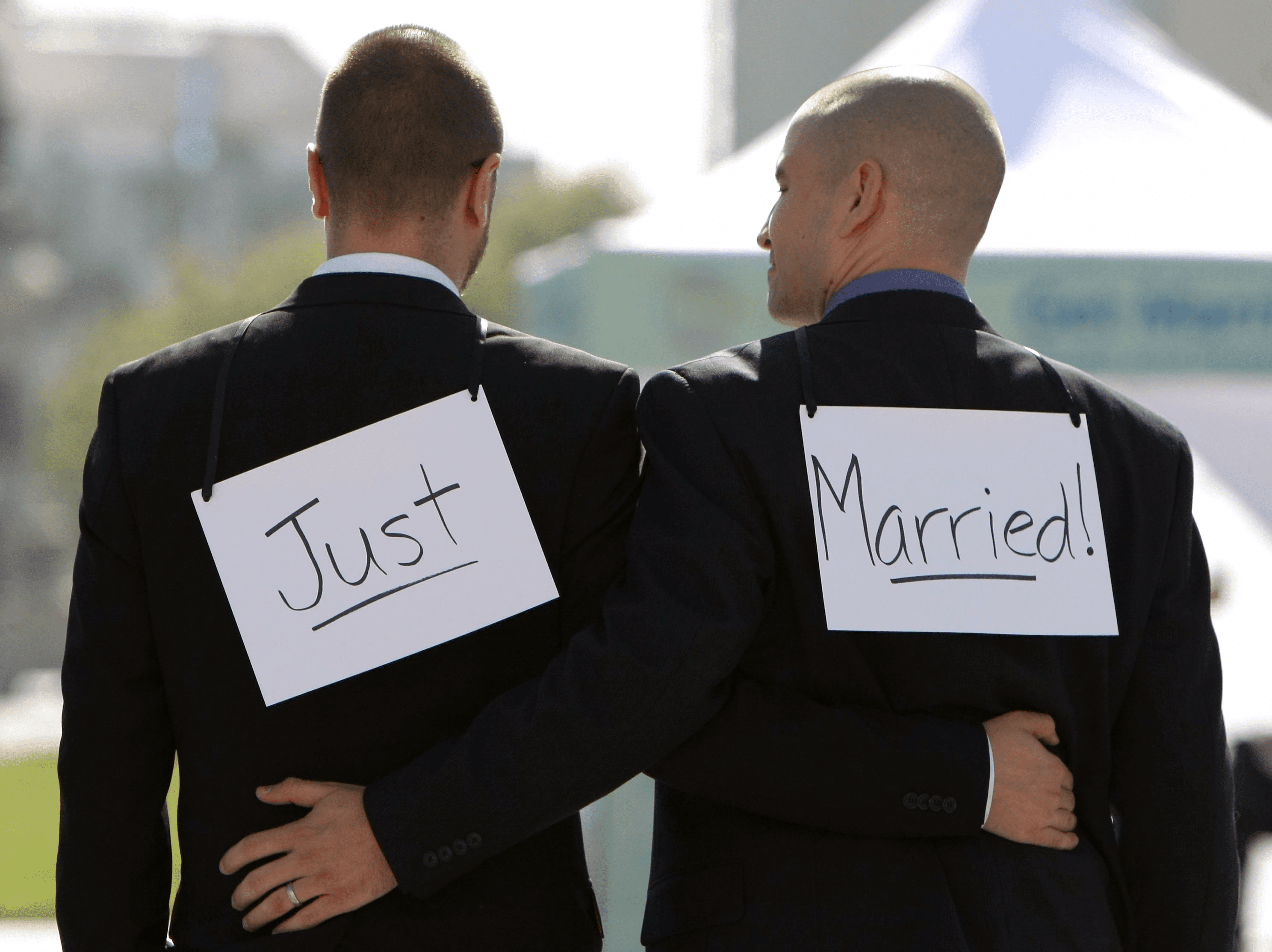The main reason I was skeptical about the movement demanding the Conservative Party abandon support for the one-man-one-woman definition of marriage (aside from the fact it was led by an unauthorized gay Tory group that seems perennially obsessed with sowing division in the party) was because I knew it would produce the headlines it did. I assume many important and consequential decisions were made at the Conservative convention in Vancouver last weekend, yet the sensationalistic gay marriage debate — which let's be clear, served zero practical purpose — was the only thing most news outlets saw fit to cover.
Granted, many Tory delegates seemed to relish the attention. Abandoning the fight for traditional marriage by a vote of 1,036 to 462 was an entirely voluntary gesture of self-flagellation from a party that has been under heavy pressure to offer atonement in the aftermath of its 2015 defeat. Reporters who declared the episode a manifestation of the party's existential anxiety in the age of Trudeau were not wrong.
Whenever a conservative political party loses office, a trite dichotomy is offered: the party can either become more liberal, and obediently follow the trail blazed by the left on social and economic policy — the option favored by the press, and often many grandees in the party itself — or they can double-down on the orthodoxies of the past and become even more repulsive right-wing demagogues. Less discussed is the idea that 21st century conservatism does not need to alter its philosophy so much as change its priorities, objectives, and arguments.
Marriage policy is a good study. Though I'm gay myself, I never found the Tory party's early-2000s opposition to homosexual marriage overly distressing. I recognized most of it was rooted in honorable motives; not rank bigotry, but a desire to protect marriage, one of the most important institutions of human civilization.
In time, of course, same-sex marriage proponents triumphed by rebuking this concern. We are not threatening marriage, they said, but expanding it to include more couples who embody the virtues of love, commitment, monogamy, self-reliance, and stable parenthood that make the institution worth protecting in the first place. The truly anti-marriage position — one championed by a great number of progressives, incidentally — is to dismiss marriage as oppressive or irrelevant. In spite of reams of evidence demonstrating that getting married is one of the best things you can do for yourself, and especially your children, many progressives continue to insist its virtues are actually shackles binding the body to archaic moral restraints.
These true foes of marriage appear to be winning. Over the last half-century, Canadian marriage rates have been in steady decline, while single-parent families have doubled and common-law couples quadrupled. The institution remains vulnerable, and in need of creative incentives and initiatives to strengthen and popularize it. Yet since losing the gay marriage fight, Canada's conservatives have shown scant interest in doing so.
Perhaps it hits too close to home. Many of the party's leading lights, including Kellie Leitch, Jason Kenney, and Maxime Bernier have never married at all. Rona Ambrose is currently separated from Mr. Ambrose and lives in the opposition leader's residence with a new man, whom the press politely describes as her "partner." Policy debates these days are often extraordinarily personal and cruel, with accusations of hypocrisy and privilege the preferred weapons. It's understandable if many Tories have come to favor a social policy agenda that prioritizes simply "accepting" lifestyles over one infused with implicit judgments that could invite their own lives to scrutiny. Yet judgement — or more properly, the defense of proven, historic truth from speculative post-modern theory — is the essence of the conservative disposition.
The most fashionable thing in the world is to claim to be socially liberal and fiscally conservative, yet the two are not quite so easily separated. In the absence of strong institutions like marriage and the nuclear family, citizens inevitably become more atomized and helpless, and thus inclined to turn towards big government as their source of provisions, structure and comfort. It may make a sort of libertarian sense to argue the state has no interest in how people organize their lives, but the state certainly benefits when they do so poorly.
Conservatives who wring their hands worrying voters will think them cruel for having opposed same-sex marriage a decade ago should consider how the public will regard a party that rallies against state reliance without offering a plausible alternative.
Photo Credit: Business Insider
Written by J.J McCullough






